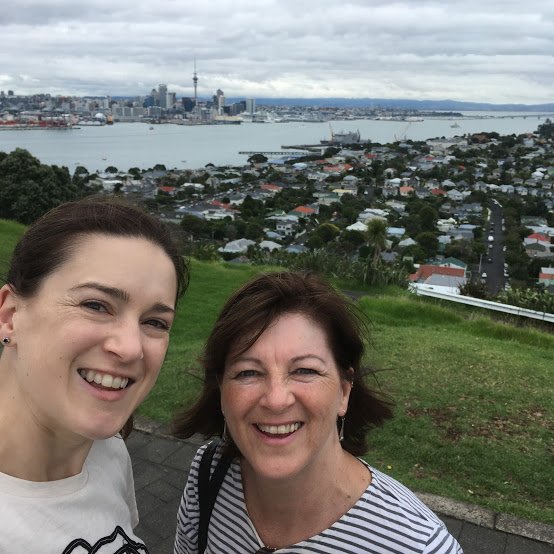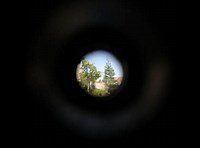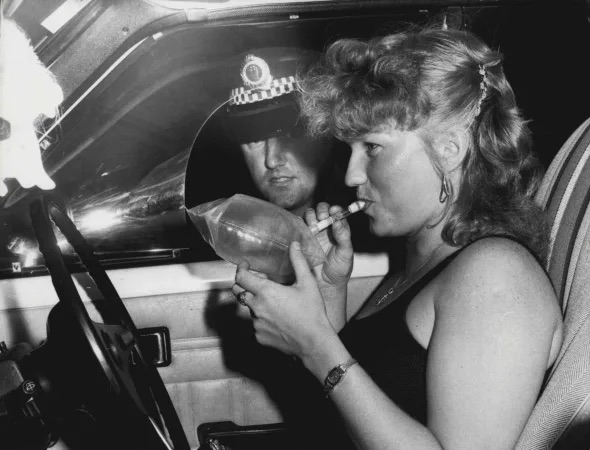I have this ‘thing’ called Retinitis Pigmentosa (RP). It’s a genetic disease that causes irreversible vision loss (low vision) and can lead to complete blindness. I have downplayed this for most of my life because it’s too hard to explain why you can see a bird in the sky but you can’t see the pencil in front of you that someone has asked you to pick up. Most people just don’t get it. I get that – that most people don’t get it. When I was young, I had more important things to focus on anyway like raising my three children. By trying to ignore it, the ‘thing’ didn’t go away. It caused my children a lot of grief especially when they were very young because they had to pick up the pieces after my latest low vision episode. The broken bones, the bruises, sprained ankles, stabbed foot, the head injury, the broken teeth ….. The injuries that were caused by walking into space at the top of a staircase twice, knocking a knife off a bench, walking into walls, potholes, signs, missing the bottom step on a bus, falling over a giant rock, a small piece of concrete, head butting an invisible steel gate …. On top of that, I had a driver’s licence until 1993. Although I never had a car accident I had it taken from me two days after my father died, three weeks before Christmas in that same year. My children were only ten, eight and seven years of age at the time. To quote Her Majesty Queen Elizabeth II, it was my annus horribilis. On second thoughts, it was one of my many anni horribiles.
I downplayed ‘the thing’ by telling fibs
Here’s just one example. Many years ago, I was having a rare night out with a group of lady friends. All single parents with young children. We decided to kick on to the casino after a cheap restaurant meal together – I think it was the MacDonald’s restaurant if I remember correctly. The lady sitting next to me who I had only met that night asked me if I could give her a lift to the casino because she had left her car at home. Strange how everyone assumes everyone else has a driver’s licence and a car to go with it. The conversation became quite interesting after I told her I had lost my licence.
Why did you lose your licence?
Drink driving.
When will you get it back?
Never.
Wow! You must have had a helluva high reading. Oh you notorious woman!!
End of conversation. She then moved onto someone else to ask for a lift.
It took another twenty plus years before suddenly I didn’t want to do low vision by myself anymore.
Retina International World Congress

In February 2018, my daughter and I attended the Retina international World congress at the University of Auckland, New Zealand after being told about it by my ophthalmologist Professor Alex Hewitt. The congress occurs over a weekend once every two years in different cities around the globe and examines the latest research into genetic eye disorders. Gene therapy, stem cell therapy, regenerative medicine and retinal implants are just some of the topics covered. In addition, practical issues including adaptive technology, coping with degenerative vision loss and making the most of your remaining sight are a feature of the congress.
At the congress we met heaps of people who had a range of different genetic eye disorders – not just RP but others I’d never even heard of before. Many were speakers at the congress who told stories about how low vision affected their lives and how they overcame the daily challenges. It inspired me to want to find out more about RP and to see if other people had similar experiences to me. Even though RP is a genetic condition, no one in my family seems to have it. So I joined an online RP support group and discovered that I wasn’t alone.
The RP Support Group – aka the RPers
I read hundreds of posts which confirmed that my experiences, many of them negative, were the same as all the other RPers – that’s what we call ourselves. Firstly, how difficult it is for ‘unexceptional’ people to comprehend serious vision loss that compromises daily functioning. Secondly, the stages in between low vision and blindness present enormous challenges that are often misunderstood in the mainstream. Consequently individuals experiencing low vision can also encounter social exclusion, discrimination and hostility directed towards them. Being part of this group gave me a feeling of connectedness because it was like reading about my own experiences. Woo-hoo! ? It made me want to do something to create awareness about a disease that causes permanent vision loss and the impact it has on those affected.
Inspiration for a Churchill Fellowship
So early in 2018, I decided to apply for a Churchill Fellowship to investigate the challenges of low vision in order to promote a more inclusive society. A Churchill Fellowship enables successful applicants the opportunity to go overseas to research a topic that they are passionate about and that they have already researched exhaustively in Australia. The field of research must be beneficial to Australia and Australians.
Research
After my application was completed and accepted I began my research. I joined a Vision Australia support group, a Telelink group for people with low vision, conducted written surveys, interviews, read research articles and posted questionnaires online amongst other things. My preparatory research showed that individuals with low vision feel they are misunderstood and are often accused of ‘faking it’. Depression due to negative public perception is also common. It became clear to me that by educating the public about these diseases and the impact it has on affected individuals is needed to change attitudes towards people with significant ongoing vision loss. My aspiration was to promote attitudinal change by raising awareness through education with the result that all people with low vision will feel supported and connected.
And then?
I managed to get an interview which amazed me. It made me realise that my topic was significant. However, I didn’t receive a Fellowship. But I have finally discovered blogging. So I’m going to use this platform to do what I set out to do – create awareness about RP.




